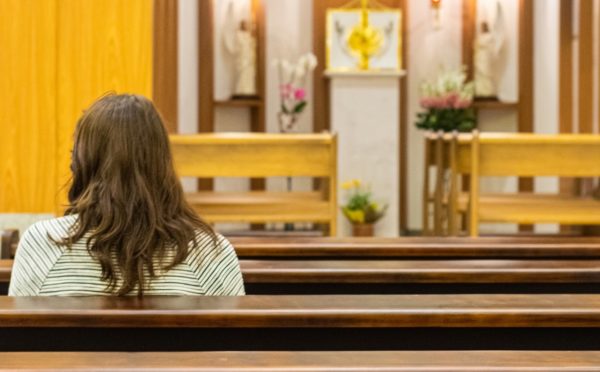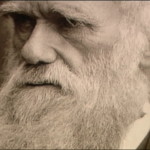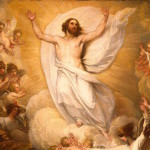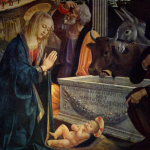How the Blessed Mother Can Answer All Those Prayers
by Dr. Dennis Bonnette
Filed under Religion

Skeptics have long objected to Catholicism on grounds that it is obvious that the Blessed Virgin Mary, if real, could not possibly hear and answer all those hundreds of millions of prayers addressed to her personally every day by faithful Catholics and many other Christians.
Given that we can barely concentrate on but a single question at a time, this objection seems, on its face, impossible to answer rationally. This element of Catholic belief seems simply absurd.
Still, there exist several possible explanations as to how this central element of Catholic spiritual practice can be true. These explanations may also apply to other Catholic saints, such as the much overworked St. Anthony, who hear and answer nearly countless prayers each day.
First, there is the possibility that God simply answers the prayers on Mary’s behalf. In this way, the Blessed Virgin might appear to hear and respond to prayers from all over the world at once, while not requiring her to do anything that is impossible on her part – since the entire process would be accomplished by the infinite knowledge and power of God, not directly by Mary herself. Nonetheless, since Mary wills whatever her divine Son wills, her will would be in accord with everything that God thereby does for those whose prayers were addressed to her.
A second possibility results from the fact that time is limited in duration, whereas eternity is entirely outside of time.
It is extremely important to understand that, when we imagine Mary or the saints somehow knowing all these seemingly countless prayers at once, we are thinking about how we ourselves process such information through time in our present bodily state. For us, it takes time to hear and understand and to think of how to reply to a petition. And so, to think of handling all these prayers at once simply defies belief.
Yet, when the soul is free of the body and united to God in eternity, this temporal experience, which is so bound up with our bodily existence, no longer obtains. Trying to imagine all these prayers at once is very misleading. The soul’s actual existence in eternity does not have this daunting temporal component. It must be conceived in an entirely different manner. After death, the separated soul is no longer limited in time by dependence on its physical body. Through infused knowledge from God, the soul can know instantly that which would take much time to assimilate during bodily life.
Since time and eternity are incommensurable, it is also conceivable that Mary could actually hear and respond in the eternal now of eternity “after” the many billions of prayers were uttered throughout a lengthy, but limited, duration of earthly human existence.
Since God is entirely outside of time, Mary’s intercession even after temporal occurrence would impact past events. Her actions would produce effects retroactively, since God would know “ahead of time” that she would intervene on someone’s behalf. Literally, Mary would have the rest of eternity in which to address the prayers of her devout believers.
I do not make the mistake here of thinking of eternity as merely endless duration, but rather understand that the soul, even of Mary, that participates in the experience of God’s eternity, does so without the limitations of temporal duration.
One of the reasons we find it so hard to imagine Mary simultaneously knowing so many prayers is that it takes time for us to process such knowledge while in our physical bodies. But, united with God in his eternity, the soul’s knowledge participates without the passage of time, and so, would not be limited as it is in this life as to how many elements could be known “at the same time.” Regardless of the exact way in which time relates to eternity, God can act on the basis of the prayers to Mary, as well as her intercession which God would foresee and apply even to past events.
Third, and finally, just how much diverse knowledge can an individual person possess and respond to simultaneously? Such knowledge could be of immense magnitude. This possibility is drawn from a phenomenon unnoticed by most thinkers, but which is still very real. I take this possibility from what we know about the simplicity of cognition – both at the sensory and intellectual levels. I have written on this topic previously on Strange Notions here and here as well as in the Homiletic and Pastoral Review.
How Immateriality Enables Perception of Wholes
The key insight is that even mere sense perception is based on the immateriality of the knower, since even animals having solely sensory cognitive powers can still know things as unified wholes, that is, all at once. Such unified knowledge of wholes simply cannot be had by any purely physical instrument or mechanism.
Consider how physical instruments store or represent data on an extended medium, such as a computer disk or television screen. Each part of the medium represents one part of the object depicted. For example, to represent an entire carrot on a television screen, the surface of the screen is composed of hundreds of thousands of separate pixels, which are either illuminated or not. Individual pixels know nothing. An entire carrot can be “imaged” by a pattern of thousands of illuminated, but separate, pixels. Yet, the screen itself knows nothing. It takes a living rabbit, with a non-extended sense faculty to see the whole carrot at once as a single object.
The complete explanation is in a Homiletic & Pastoral Review article by me, but here are some of its insights:
“And yet, our dumb bunny sees a carrot as a whole — with all its parts distinct from its other parts. Seeing something as a whole means apprehending the entire object and all its parts at once (at least as seen from a single perspective) — something no merely physical device can do. And neural patterns in the brain suffer the exact same problem as does a television set, that is, that distinct parts represent distinct parts of the object — be it an image or an externally-sensed object — so that no single part “sees” the whole object apprehended. Attempting to achieve unity would entail collapsing all the distinct parts on top of each other, which would only completely destroy the intelligibility of what was being viewed.”
Since a materialist philosophy depicts a world in which all things are extended in space-time, the fact that animals can sense things as a whole proves that animals must have some immaterial element in them which enables them to sense objects as a whole:
“The basic reason for this inability of material devices to “see” a whole in a unified manner is because every physical entity is extended in space. This means that it can intelligibly depict another object only by having one part of it representing one part of the object and a diverse part representing another part of the object. No single part can “see” the whole. This, in fact, is how artificial recording and observation devices as well as the corresponding neural receptor patterns in biological organisms work. This is true at the macroscopic level, as … [is evident from] … the television example. But, it would also be true at a submicroscopic level (assuming such artificial or natural physical “observation mechanisms” existed.)”
The materialist’s world of purely physical things is not a world in which experience of wholes is possible. Still, animals do experience things as wholes. This means that metaphysical materialism or physicalism is a false philosophy. The existence of certain sentient beings proves that some immaterial realities exist – and they exhibit their reality in cognitive acts of sense perception of wholes, such as is the case with the power of sight.
Role of Immateriality in All Cognition
The argument for sensation’s immateriality is fully developed in my Homiletic & Pastoral Review article. Moreover, I use this necessary immateriality of sense acts to show that the ability to apprehend cognitively many objects -- whether images or concepts or judgments -- in a single unified act is based on the various levels of immateriality of the involved cognitive faculties.
In one of my Strange Notions articles, I show that this immateriality of cognition is how God is able to know all things in a single unified act which is the divine essence:
“What has all this to do with God’s ability to know and to cause the near infinite multiplicity of the created world? Simply this. While we do not know exactly how the immateriality of God’s or man’s cognition enables them to know multiple, whole objects, or even how animals do it at their own merely sentient level of cognition, still, the fact remains that immateriality is the key to explaining how cognition can unify the complexity of experience into wholes, which can be experienced in a single, unified act of cognition.”
Basic Aristotelian philosophical psychology tells us that, because of the immateriality of their intellective souls, human beings are able to form concepts, make judgments, do reasoning, and understand multiple meanings of words in a single complex thought. This is why we do not say, “I hear all your words,” but “I get your meaning.”
Those meanings may be multiple and complex, but express a unified insight or thought, or even a group of related meanings or thoughts. All this is based on the immateriality of intellectual cognition, whose conceptual content, in turn, is abstracted from the images that arise out of initial sense perception. Still, the human material condition limits the quantity of things we can know simultaneously. On the other hand, God knows all things in a single, simple, eternal intellectual act, which is identical with the divine essence.
Just as immateriality enables animals to perceive sensible wholes in single act of sense perception and just as God can understand all things in a single act of intellectual apprehension, so too, human beings and other finite intellectual substances (angels) can understand multiple things in a single act. Yet, in man, this ability to understand many things at once is limited by the material condition of his bodily organs.
But How Does Mary Know All Our Prayers?
Still, how does all this explain the fact that the Blessed Virgin can know and respond to hundreds of millions of prayers to her each day? While she was living as an ordinary human being on this earth, she could not do so. That is because physical matter limits the number of things we can know at once, even though our ability to do so in a unified way still demonstrates the immateriality of our cognitive powers.
The body that limits the soul in its intellectual activities. This limitation arises particularly because of the dependence of the intellect on the phantasm or image during the thought process. And, since the image is apprehended under the conditions of matter, our power to apprehend multiple cognitive objects at once suffers from the limitations of matter. The mere fact that we cannot imagine the apprehension of so many experiences at once underlines the limitations inherent in the sense faculties which are dependent on material organs, since the imagination is an internal sense faculty.
But, after death, the separated soul’s knowledge is directly infused in it by God and no longer depends on the operations of either external or internal sense faculties. After death, the separated soul no longer learns through sense experience. After death, God can infuse into the soul multiple cognitive objects at once with virtually no limit other than the soul’s own inherent finitude.
“Just as animals and man can do this at our own finite and limited levels, by way of transcendent analogy, the same explanation must be applied to God so as to render intelligible how he can know all things and cause all things, even in their near infinite multiplicity – all the while remaining absolutely simple and undivided in himself. We do not need to know exactly how he does this, any more than we need to know how we do it – in order to know that it is true (1) that it happens and (2) that it can happen solely because of the immateriality of the cognitive powers involved.”
But, to return to our theme about the ability of Mary to answer a multitude of prayers, all we need know is that (1) freedom from matter is the key to knowing multiple sensory or intellectual objects at once, and (2) that once freed from the limitations of the body, the immaterial soul can know as many cognitive objects at once as God chooses to infuse into it. Hence, both Mary and the saints can have virtually unlimited knowledge of particular things at once, that is, in a single, unified experience – just as God can know all things in a single, unified experience.
While this may also be true of the other saints, who now exist as separated souls in a purely spiritual state, consider the following curious objection. Since Mary is dogmatically defined as having received a glorified body already in Heaven, would not that body, in virtue of its materiality, prevent her from knowing what lesser saints can now know in virtue of their purely immaterial condition?
Now, it may be true that Mary would be limited as to her knowledge insofar as it is gained through the operations of her glorified body’s senses. But, this in no way prevents God from directly infusing into her mind virtually unlimited intellectual and even sense knowledge, which is not dependent for its origination upon the function of bodily organs.
In this life, all knowledge comes through the senses and is limited in the conceptual order by the material phantasms which the body enables the imagination to form. It is understandable that these inherently material limitations as to how we learn and know things in this life would be superseded once the soul if freed from such intimate dependence on material organs, such as the brain. Such independence is easily achieved once God directly infuses knowledge, such as when he gives to Mary and the saints direct knowledge of the prayers of men – entirely independent of the role of the various sense organs of the body.
Conclusion
Therefore, whether (1) God answers the prayers of the faithful on behalf of Mary in her stead, or (2) Mary has an unlimited eternity in which to respond to prayers offered to her by humans living in time, or (3) Mary has virtually unlimited ability to know all prayers offered to her, because God directly infuses that knowledge into her intellect without dependence on the limitations of bodily senses, or (4) in virtue of some combination of the first three alternatives, the objection of the skeptics, who claim that the Blessed Virgin Mary cannot attend to massive numbers of prayers at once, is refuted.
Related Posts
Note: Our goal is to cultivate serious and respectful dialogue. While it's OK to disagree—even encouraged!—any snarky, offensive, or off-topic comments will be deleted. Before commenting please read the Commenting Rules and Tips. If you're having trouble commenting, read the Commenting Instructions.












